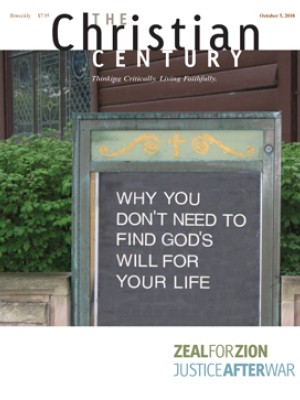City prayers
In a lecture on the communion of saints, the Baptist preacher Carlyle Marney said that each of us is like a house. In the house is a living room where we entertain and a dark basement where we store the trash. And, Marney said, each house has a balcony with all the people who have influenced and inspired us. They are our saints. The way to celebrate All Saints Day, he said, is to step out onto the front lawn and salute the people on your balcony.
One of my balcony people died recently. Ernest T. Campbell was a Presbyterian pastor in Oregon, Pennsylvania and Michigan prior to becoming senior minister at Riverside Church in New York. I first encountered Ernie when I happened on a small booklet of sermons he had preached on the National Radio Pulpit and on The Protestant Hour. I was blown away. His sermons were based on strong biblical exegesis, and they were witty, contemporary, theologically sophisticated but accessible. I never preached a sermon of his, but I learned a lot by observing how he did it.
Read our latest issue or browse back issues.
While in New York to see the sights with my family in 1969 I took them to Riverside Church. It was a summer Sunday and Campbell was in the pulpit. I was not disappointed. I don't remember much of the sermon, but I have never forgotten its compelling opening story. It seems that a major soup company had just been caught putting marbles in the vegetable soup shown in its television commercials. The marbles lifted the vegetables to the surface and made the soup look more substantial than it was. Campbell preached about authenticity. Ever since, when someone is being less than genuine or making dubious self-centered claims, I have remembered Ernie's image of marbles in the soup.
We met just once but corresponded a bit, which gave me the opportunity to tell him what he and his ministry meant to me. I was honored when he asked me to read and endorse a revised edition of his book of prayers, Where Cross the Crowded Ways: Prayers of a City Pastor. He writes there about realizing that his prayers were "drifting into reliable clichés, and not connecting with his people's thoughts and needs." He began setting more time aside proportionately to writing the pastoral prayer than to writing the sermon.
Campbell's prayers reflect his investment. They are genuine, compelling, inclusive, immediate. He prayed regularly for the city, as Jeremiah told the exiles to pray for Babylon: for the mayor, the police and firefighters, the homeless poor, the worried unemployed: "We ask, Lord, for the most meaningful advent we have ever known . . . We pray for those who are up against hard numbers; those who serve a fixed prison sentence; those in the hospital whose life expectancy is a matter of days; those who must make a payment on a note at a set time."
And on Easter morning he prayed: "For this day of days, O God, we bless your name. With angels and archangels and all the company of heaven, we rejoice that death is finished, that love prevails, that Christ is here . . . Use us where and as you will, until the fever of life is over, and our work is done, and we rest in you."
Amen.






